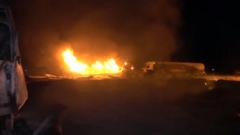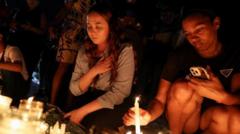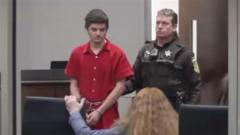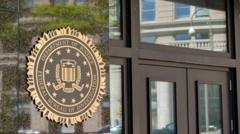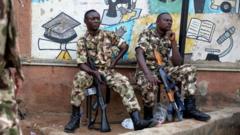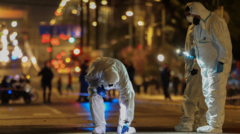In a disturbing turn of events, the New Orleans attack on New Year’s Day has claimed the lives of 14 people, as the Islamic State acknowledged the attacker's inspiration while carefully avoiding a direct claim of responsibility.
New Orleans Tragedy: A Deep Dive into the Recent Attack

New Orleans Tragedy: A Deep Dive into the Recent Attack
The Islamic State praises an attacker who killed 14 pedestrians in New Orleans, yet stops short of taking direct responsibility.
The tragedy unfolded early on January 1, 2025, when Shamsud-Din Bahar Jabbar, a 42-year-old U.S. Army veteran from Texas, drove a truck bearing an ISIS flag into a crowd of pedestrians on Bourbon Street. The assailant was reportedly influenced by ISIS’s online discourse and messaging, according to a recent bulletin from the terrorist group. This bulletin prompted discussions about the state of media discourse around such events, mocking American outlets for anticipating an official responsibility claim.
While the FBI indicated that Jabbar lacked active ties to ISIS, they confirmed he was greatly inspired by the group's propaganda. Authorities noted that he left behind a disquieting recorded message for his family declaring his allegiance to the organization. Despite the absence of a direct claim from ISIS, analysts from the Counter Extremism Project have signaled the significance of this situation, emphasizing how ISIS continues to foster a culture of violence through its digital content.
Experts highlighted the unusual nature of this case, where ISIS celebrated rather than formally claimed an attack, suggesting a strategic shift in the organization’s operational discourse, potentially to inspire future acts of terror during public gatherings and holidays.
As the investigation unfolds, the New Orleans community gathers to mourn the loss of innocent lives at vigils, while authorities strive to understand the motivations that led to this chilling act of violence. The implications of online radicalization pose serious questions for public safety as cities remain vigilant in the wake of such tragedies.
While the FBI indicated that Jabbar lacked active ties to ISIS, they confirmed he was greatly inspired by the group's propaganda. Authorities noted that he left behind a disquieting recorded message for his family declaring his allegiance to the organization. Despite the absence of a direct claim from ISIS, analysts from the Counter Extremism Project have signaled the significance of this situation, emphasizing how ISIS continues to foster a culture of violence through its digital content.
Experts highlighted the unusual nature of this case, where ISIS celebrated rather than formally claimed an attack, suggesting a strategic shift in the organization’s operational discourse, potentially to inspire future acts of terror during public gatherings and holidays.
As the investigation unfolds, the New Orleans community gathers to mourn the loss of innocent lives at vigils, while authorities strive to understand the motivations that led to this chilling act of violence. The implications of online radicalization pose serious questions for public safety as cities remain vigilant in the wake of such tragedies.




